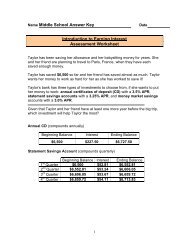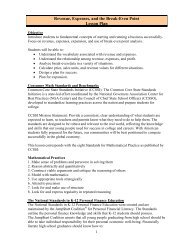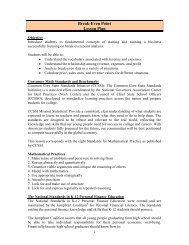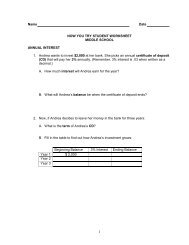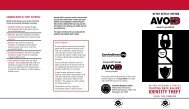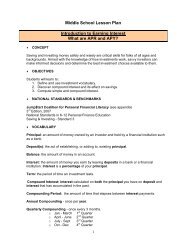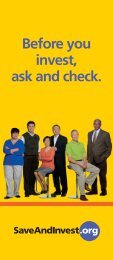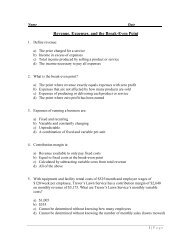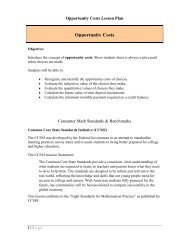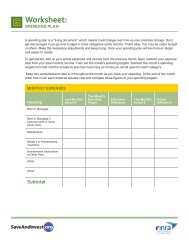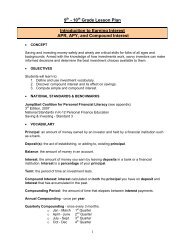9th - 10th Grade - SaveAndInvest.org
9th - 10th Grade - SaveAndInvest.org
9th - 10th Grade - SaveAndInvest.org
Create successful ePaper yourself
Turn your PDF publications into a flip-book with our unique Google optimized e-Paper software.
7. Next, calculate the annual interest he will earn on $8,080.20:<br />
$8,080.20 x .02 = $161.60<br />
8. Calculate his 3 rd quarter interest payment:<br />
$161.60 / 4 = $40.40<br />
9. Add Michael’s 3 rd quarter interest payment to his balance:<br />
$8,080.20 + $40.40 = $8,120.60<br />
‣ At the end of the 3 rd quarter his principal balance will be: $8,120.60<br />
10. Finally, calculate the annual interest with a balance of $8,120.60:<br />
$8,120.60 x .02 = $162.41<br />
11. Calculate his 4 th quarter interest payment:<br />
$162.41 / 4 = $40.60<br />
12. Add his 4 th quarter interest payment to his balance:<br />
$8,120.60 + $40.60 = $8,161.20<br />
‣ At the end of the 4 th quarter his principal balance will be $8,161.20.<br />
After four quarters have passed, Michael has had his money in the statement savings<br />
account for one year. His ending balance at the end of that year is $8,161.20.<br />
Do you remember what his ending balance would have been if he had opened a<br />
certificate of deposit instead? ($8,160)<br />
Let’s compare these two choices. Which type of account would have earned Michael<br />
more interest?<br />
How much more interest would Michael earn by opening the statement savings<br />
account instead of the annual certificate of deposit? ($1.20)<br />
Why? Both accounts were paying the same 2% APR, why were the balances different at<br />
the end of the year?<br />
If 2% of $8,000 is $160, and he earned $161.20 in the statement savings account, then<br />
he must have actually earned more than 2% in the statement savings account.<br />
This is because he earned interest on his interest during the year. His statement<br />
savings account yielded more than 2% for the year.<br />
This extra money he earned, because of compounding interest, is called annual<br />
percentage yield (APY).<br />
4



